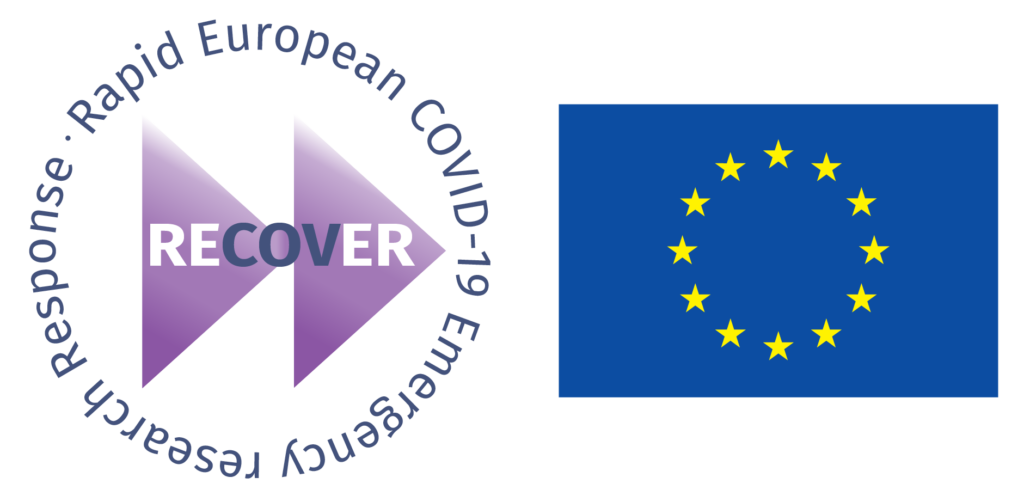News
Read about the latest developments in RECOVER
The End of RECOVER: Closing Interview
The impactful RECOVER project officially came to an end in August 2023. In a series of video interviews, RECOVER project lead Em. Prof. Herman Goossens gives an overview of the project’s challenges and highlights.
RECOVER Closing Conference recap
Last week, the RECOVER Closing Conference took place in Zagreb, Croatia to honour the end of the project, this August. Not only was it an occasion to look back at the eventful past 3,5 years, but also to look towards the future and what is still to come.
RECOVER paper among BJGP’s most cited articles
We are proud to announce that one of the papers from our Social Science team is now one of BJGP’s most cited articles! This is a great achievement and a recognition of RECOVER’s contribution to COVID-19 research..
Modelling the end of a Zero-COVID strategy using nirmatrelvir/ritonavir, vaccination and NPIs in Wallis and Futuna
In November 2022, a new RECOVER paper was published titled ‘Modelling the end of a Zero-COVID strategy using nirmatrelvir/ritonavir, vaccination and NPIs in Wallis and Futuna’. The aim of the study was to investigate how targeted use of nirmatrelvir/ritonavir can complement vaccination and non-pharmaceutical interventions (NPIs), and mitigate the epidemic rebound expected when Zero-COVID ends.
Population-based screening in a Dutch municipality after a primary school outbreak of the SARS-CoV-2 Alpha variant
In October 2022, a RECOVER paper was published on the outbreak of the SARS-CoV-2 Alpha variant in a Dutch primary school. The RECOVER team studied this outbreak, retrospectively and prospectively from December 2020 until February 2021, by using population-based screening. The aim was to get a better understanding of the disease severity and transmission of the Alpha variant.
PRESS RELEASE: Ecraid intensifies efforts against monkeypox
Ecraid augments its response to the expanding monkeypox outbreak in Europe. These preparations are proportionate to the current perceived risk of this infection for European citizens. Ecraid is now operating in outbreak response mode 3 (response) for adults, and in outbreak response mode 2 (mobilisation) for children, the third and second of three response modes.
Reflecting on methodological choices when conducting rapid qualitative interview research during the COVID-19 pandemic
The International Severe Acute Respiratory and Emerging Infection Consortium (ISARIC), one of our partners within the RECOVER Consortium, has recently published a new paper on COVID-19 data. The report focuses on a prospective, standardised, global dataset of patients that were hospitalised with COVID-19.
RECOVER’s partner ISARIC published report on COVID-19 dataset
The International Severe Acute Respiratory and Emerging Infection Consortium (ISARIC), one of our partners within the RECOVER Consortium, has recently published a new paper on COVID-19 data. The report focuses on a prospective, standardised, global dataset of patients that were hospitalised with COVID-19.
ECRAID PRESS RELEASE – European response to monkeypox virus outbreak
The impacts of healthcare professionals being research participants are often neglected. As professionals, they tend to be perceived as ‘immune’ to many negative effects of sharing their experiences. However, in the context of an ongoing global pandemic such as COVID-19, these assumptions can be clearly challenged. In March 2022, the RECOVER Social Science team, together with other collaborators, published a new article that draws on their experiences of conducting single and longitudinal qualitative interviews with Health Care Professionals (HCP) in primary, secondary and tertiary settings during the COVID-19 pandemic in Europe during 2020.
Reflecting on methodological and ethical considerations when interviewing healthcare professionals
The impacts of healthcare professionals being research participants are often neglected. As professionals, they tend to be perceived as ‘immune’ to many negative effects of sharing their experiences. However, in the context of an ongoing global pandemic such as COVID-19, these assumptions can be clearly challenged. In March 2022, the RECOVER Social Science team, together with other collaborators, published a new article that draws on their experiences of conducting single and longitudinal qualitative interviews with Health Care Professionals (HCP) in primary, secondary and tertiary settings during the COVID-19 pandemic in Europe during 2020.

